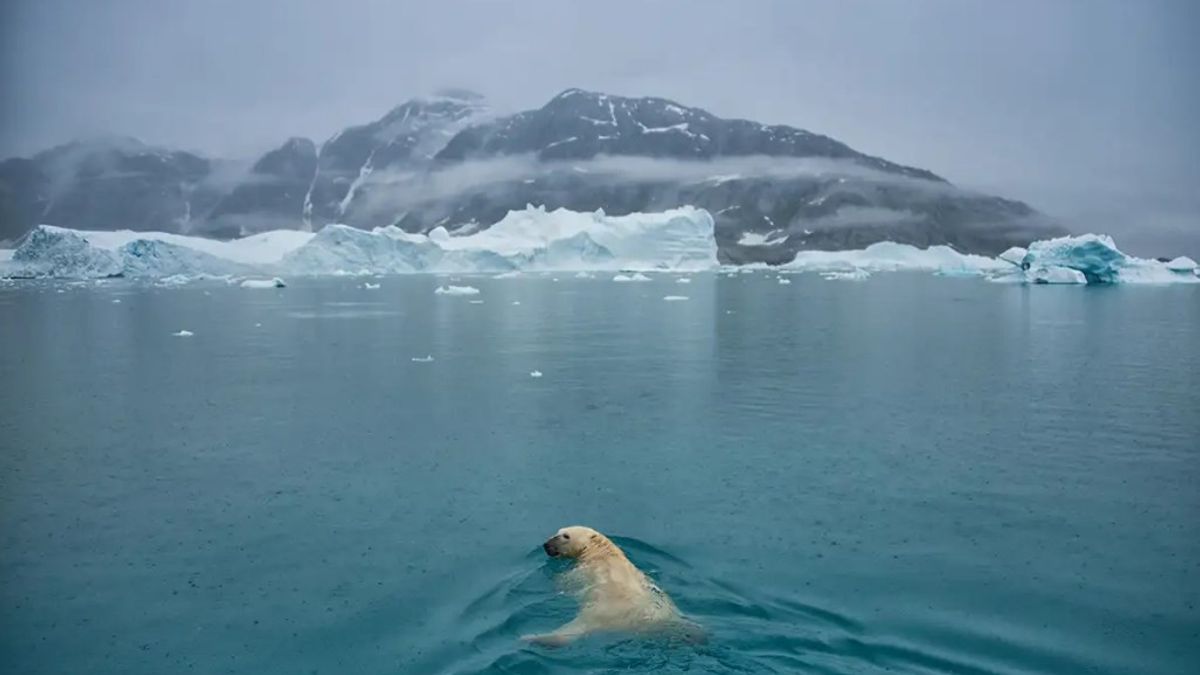JAKARTA – Heavy rain fell on the ice area of Greenland on Saturday, August 14. This event is the first time in history. The rain lasted for more than 24 hours.
Based on data from the National Science Foundation's Summit Station reports that as much as 7 billion tons of rain has fallen on Greenland. The rain on the top of Greenland has made the temperature at the top of the mountain increase.
The rain in Greenland is said to be the "heaviest" rain that has hit Greenland since 1950. Experts call this phenomenon an anticyclone. This situation makes the hot weather persist and create heat waves in certain areas for a long period of time.
Scientists explained that the anticyclone phenomenon on the Greenland ice cap was caused by warm air and water vapor driven by high air pressure from southeastern Greenland and Baffin Island as reported by CNN.
The rain has made the ice sheet in Greenland melt about 872,000 square kilometers. This size is equivalent to one country in Africa, Namibia.
"Previously there were no reports of rain at this location, with a height of 3,216 meters," researchers from the National Snow and Ice Data Center (NSIDC) said in an official statement.
Scientists have been warning about the possible melting of the Greenland ice sheet and its dangers since February 2021. The NSIDC says that currently about 21.3 million square kilometers of ice-covered areas have melted.
In July, the Greenland ice sheet melted and lost about 8.5 billion tons of ice sheet. The melting of the ice sheet on a large scale occurred in one day.
Meanwhile, in 2019, about 532 billion tons of ice in Greenland was spilled into the ocean. Experts assess the cause is a heat wave that occurred during the month of July which triggered the entire surface of the ice to melt. This phenomenon has made sea levels rise 1.5 millimeters.
Regarding climate change, the United Nations through the Intergovernmental Panel on Climate Change (IPCC) has issued a report on the condition of the Earth in the next few years, geothermal heat is predicted to increase by 1.5 degrees Celsius in the next 20 years.
UN Secretary General António Guterres said that this was a sign of danger to Earth's creatures. The increase in geothermal temperatures is predicted to cause areas on Earth to experience drought, and some to experience flooding.
The English, Chinese, Japanese, Arabic, and French versions are automatically generated by the AI. So there may still be inaccuracies in translating, please always see Indonesian as our main language. (system supported by DigitalSiber.id)













